Conscious, Embodied, Direct Experience

“The Buddha came to the following realization: The path to happiness and a sense of well-being in this very life lies not in avoiding suffering but in using the conscious, embodied, direct experience of it as a vehicle to gain deep insight into the true nature of life and your own experience.
“Instead of being a reactionary slave to the inevitable pain, frustration, stress, and sorrow in your life, which the Buddha called dukkah, you can free your mind such that you have a sense of well-being even when dukkah is present, and you create the possibility of finding complete freedom…
“The Buddha discovered a path for finding freedom from dukkha or suffering, which he called the Four Noble Truths. This set of attitudes and practices he prescribed doesn’t require you to create some new and improved version of you — one that you can only hope will someday emerge. You can take these steps as the ‘you’ who exists right now — the one who gets lost, afraid, angry, and caught up in desire, despite good intentions.
“All that’s required is that you let go of your preconceived notions about suffering and open yourself to exploring the role that it plays in your life.
“If you are new to meditation practice, you may well think that you have no choice about how you experience suffering. You may have some problem from your past or in your current situation that seems as though it can be understood only as unrelenting pain — an abusive family history, a tortuous marriage, economic woes, a hideous wrong done to you, a disable child whose affliction breaks your heart.
“But if you give yourself a chance to investigate your suffering more deeply, you will discover that being ‘with’ your pain can lead to wisdom and happiness. The event or circumstance itself does not lose its unpleasant or unfortunate quality, but by going through it consciously you arrive at a peaceful and luminous state of mind. In this ‘enlightened’ state, your mind experiences difficulty in a very different manner.”
— from Dancing with Life, by Phillip Moffitt
“The Water Dancer”
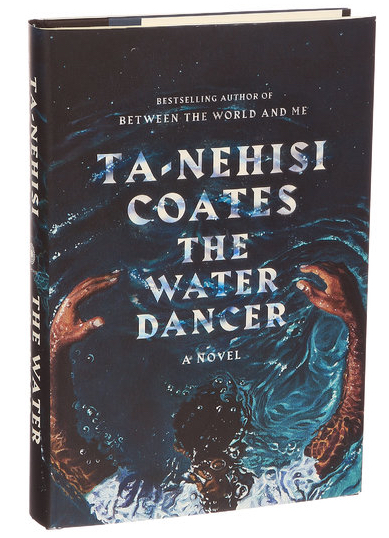
Ta-Nehisi Coate’s newest book, The Water Dancer, arrived on my iPad today (I pre-ordered it months ago and have been waiting not-so-patiently ever since).
I’m already in the middle of several “must read” books, but this one just jumped to the head of the line.
Here’s a sample from the opening chapter:
“I felt my limbs submit, and the mystery and confusion of the events that had deposited me into the depths nagged me no longer, and this time, when I went under, there was no burning, no straining for breath. I felt weightless, so that even as I sank into the river, I felt myself rising into something else. The water fell away from me and I was alone in a warm blue pocket with the river outside and around me. And I knew then that I was, at last, going to my reward.
“My mind journeyed further back still, to those who’d been carried out of this Virginia, out Natchez-way, and I wondered how many of them might well have gone farther still, far enough to greet me in that next world I now approached. And I saw my aunt Emma, who worked the kitchen all those years, walking past with a tray of ginger cookies for all the assembled Walkers, though none for her or any of her kin. Perhaps my mother would be there, and then, at the speed of thought, I saw her flickering, before my eyes, water dancing in the ring. And thinking of all of this, of all the stories, I was at peace, and pleased even, to rise into the darkness, to fall into the light. There was peace in that blue light, more peace than sleep itself, and more than that, there was freedom, and I knew that the elders had not lied, that there really was a home-place of our own, a life beyond the Task, where every moment is as daybreak over mountains. And so great was this freedom that I became aware of a nagging weight that I had always taken as unchangeable, a weight that now proposed to follow me into the forever. I turned, and in my wake, I saw the weight, and the weight was my brother, howling, thrashing, screaming, pleading for his life.”
The Pines Have Been Especially Candid
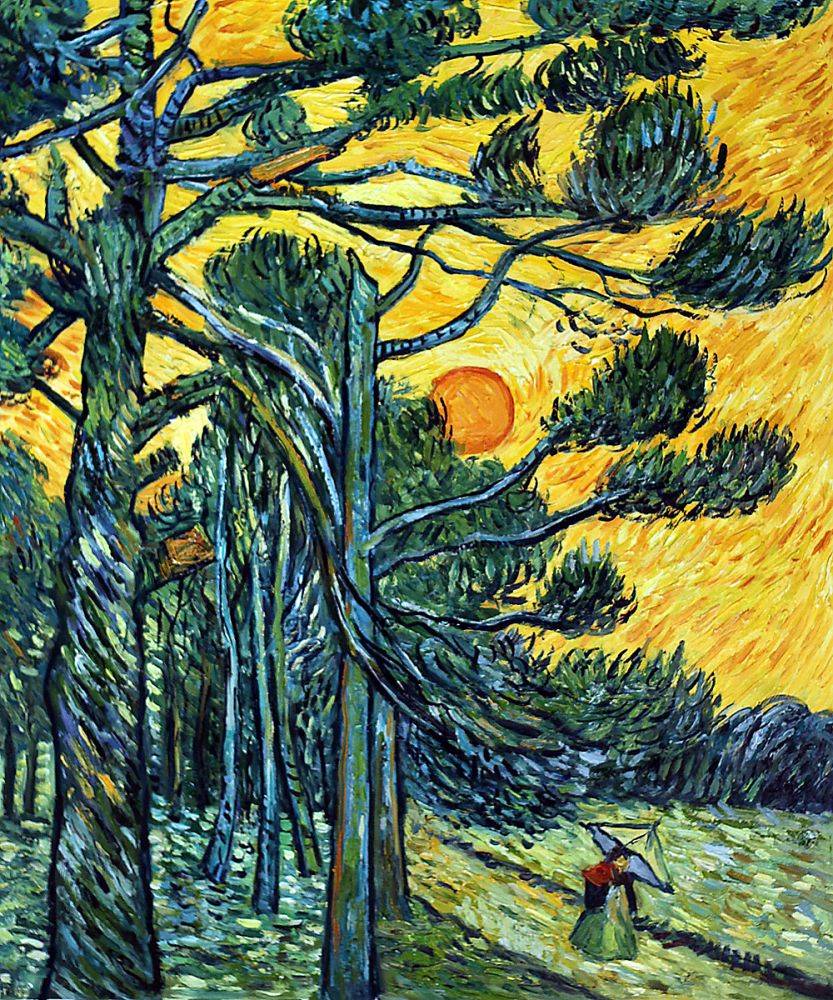
Ancient Language
by Hannah Stephenson
If you stand at the edge of the forest
and stare into it
every tree at the edge will blow a little extra
oxygen toward you
It has been proven
Leaves have admitted it
The pines I have known
have been especially candid
One said
that all breath in this world
is roped together
that breathing is
the most ancient language
Are You Afraid of Being Happy?
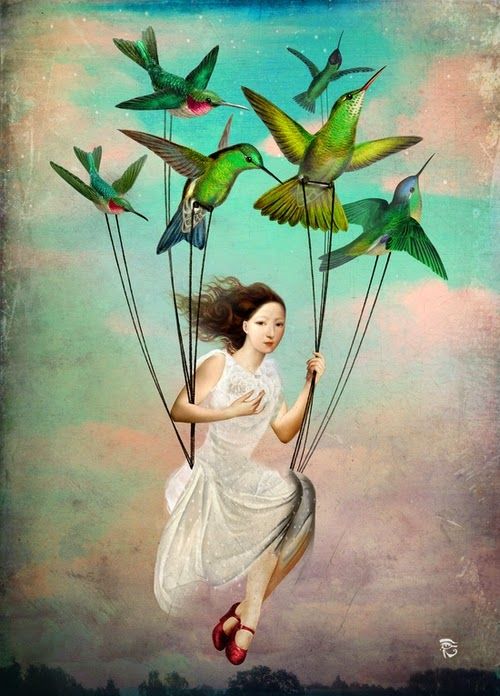
In Dancing with Life, Phillip Moffitt writes:
“A few years ago I was teaching a silent meditation retreat attended by a student I’ll call Thomas… After much inquiry, Thomas came to the conclusion that he almost never stayed mindful during his good moments, partly because he had an unconscious belief that good moments are the way life is supposed to be, so when they occurred it simply indicated that he was finally functioning at his minimal level of capacity…
“Further exploration revealed that Thomas was also afraid that if he focused on the good moments in meditation or in his daily life he would become lazy and lose his motivation to both succeed in the world and to practice.
“Working with Thomas led me to start noticing how many people in my weekly sitting group skip over their good moments of meditation. Then I began being mindful of how many people in casual daily conversation seldom mention enjoying something, being in a good mood, or feeling gratitude or appreciation for their many blessings.
“What it revealed to me is that people are afraid or at least ambivalent about being present for their own happiness!
“….You may be telling yourself that you certainly are not afraid of your happiness. You might be right, but I suggest that you pay more attention to how you handle your moments of happiness before reaching such a conclusion.
“In my observation ambivalence, defensiveness, and even aversion toward happiness is quite pervasive. Even among people who talk about wanting to be happy, there is a tendency to distance themselves and take their actual felt experience of happiness for granted…
“Sometime students resist my instructions to be mindful of their happy moments because they mistakenly believe that if they bring mindfulness to their joy it will disappear!
“When I first encountered this belief it took me by surprise. Your happiness will not be diminished by becoming fully present with it; it will be enhanced. It is true, however, that your mindfulness of the pleasant will reveal whether you are clinging during times of happiness, or if your euphoria is false, or if your pleasure is coming from unskillful acts that will bring harm….
“Once you understand the depth and subtlety of practicing with happiness, you will see how challenging it can be for your mind to embrace happiness but also how beneficial it can be to your life…
“Let this be your quiet practice, your open secret, visible in your feeling tone, words, and actions, but never directly stated to others…
“Please do not deny yourself this gift of wonderment and joy; being fully present with your happiness is a vital part of dancing with life.”
A Kind of Love, Is it Not?

The Patience of Ordinary Things
by Pat Schneider
It is a kind of love, is it not?
How the cup holds the tea,
How the chair stands sturdy and foursquare,
How the floor receives the bottoms of shoes
Or toes. How soles of feet know
Where they’re supposed to be.
I’ve been thinking about the patience
Of ordinary things, how clothes
Wait respectfully in closets
And soap dries quietly in the dish,
And towels drink the wet
From the skin of the back.
And the lovely repetition of stairs.
And what is more generous than a window?
Everything They Encounter
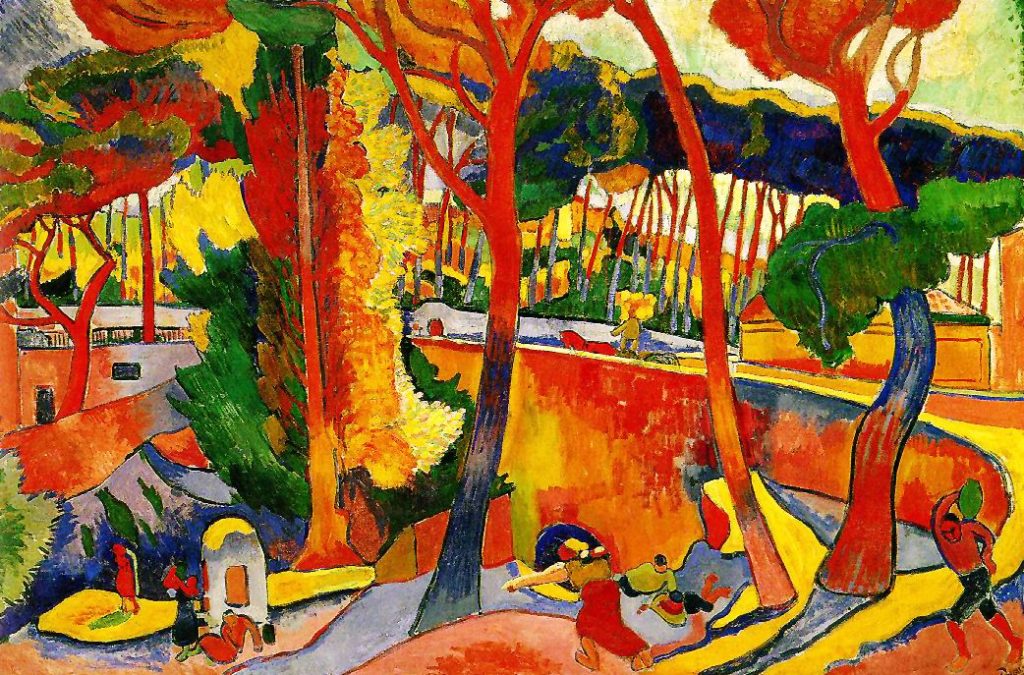
Earthworms
by Lynn Ungar
Imagine. The only thing that
God requires of them
is a persistent, wriggling, moving forward,
passing the earth through
the crinkled tube of their bodies
in a motion less like chewing
than like song.
Everything they encounter
goes through them,
as if sunsets, drug store clerks,
diesel fumes and sidewalks
were to move through our very centers
and emerge subtly different
for having fed us — looser somehow,
more open to the possibility of life.
They say the job of angels
is to sing to God in serried choirs.
Perhaps. But most jobs
aren’t so glamorous.
Mostly the world depend upon
the silent chanting underneath our feet.
To every grain that enters: “Welcome.”
To every parting mote: “Be blessed.”
It Doesn’t Even Have to Be Called Buddhism
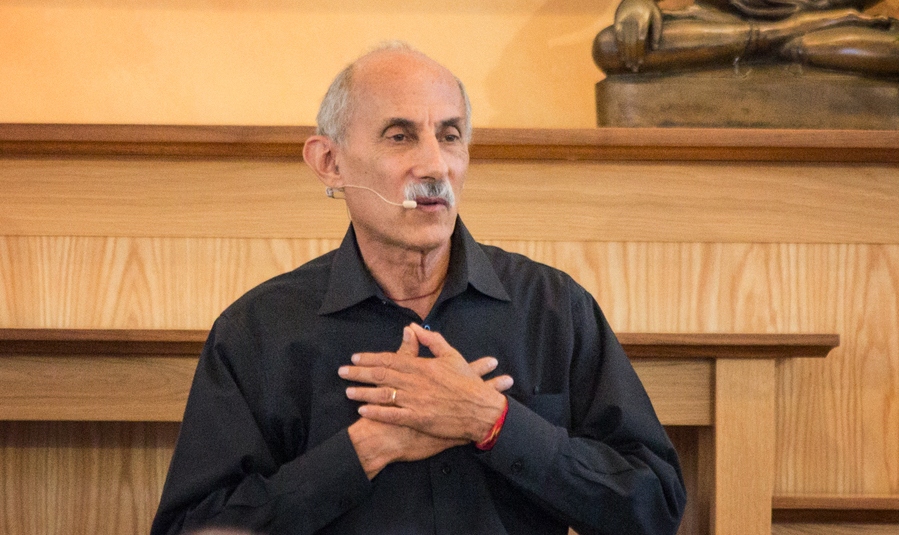
The following is an excerpt from Let’s Just Call It Love, by Jack Kornfield, published in the March 2019 issue of Lion’s Roar magazine:
“The important question is not the future of Buddhism…
“It is clear there won’t be a single Buddhism in the West. There will be different Buddhisms. Every other Buddhist culture has many sects and traditions living side by side. These express the ten thousand skillful means of awakening: through devotion and meditation, direct pointing and transmissions, myth and story, community and ritual, wise heart and wise society.
“There are conservative, traditional sects who preserve the teachings, and in each generation, there are adaptive sects who modernize and renew them. Even though they can glare at each other across the divide, these perspectives complement each other. We need them both.
“Buddhist traditions in the West are already being changed. While we don’t know what the next decades will bring, there are hints.
“Buddhism in the West is already not as patriarchal as in the past, embodying more female leaders and more feminine wisdom. It is less hierarchical and more democratic. While building monastic traditions, it is more lay-oriented.
“There is more emphasis on meditation and less on the practice of devotion and offering. There is a growing use of self-compassion to counterbalance spiritual ambition and misguided effort.
“While true to its roots, Buddhism is also incorporating the complementary skills of modern psychology, trauma work, and neuroscience. Diversity and inclusion is a visible direction for Buddhist communities everywhere, as is more active engagement in the alleviation of suffering in our society….
“And true to capitalism, the dharma is being packaged and sold. Some people are worried about the watering down of the dharma, the secular selling without a deeper foundation. History laughs. Let it spread in ten thousand forms. The dharma can take care of itself! It is magnificent, the timeless truth, the reality of life.
“And honestly, though we Americans are expert at misusing things, there is a centuries-long tradition of misusing the teachings prior to us. Magnificently watered-down dharma was and is widespread across Buddhist Asia.
“There are whole sects that live for money-making funerals, and millions who go to temples to get fortunes read or to make offerings for business success, better luck in marriage, or to offset their continuing misdeeds. Yet these societies are also the treasure houses of profound dharma and great sanghas. Popular Buddhism and devotion to deep practice inter-are. They always exist in a dance together.
“I say let the dharma spread and become so common it becomes an invisible understanding, enhancing humanity in every field. Let it foster virtue, inner well-being, respect for basic human dignity, care for all life, and the awakening of freedom.
“Let these seeds of goodness flower in a thousand forms.
“It doesn’t even have to be called Buddhism.
“Let’s just call it love.”
Practice with Phillip from Home — for FREE!
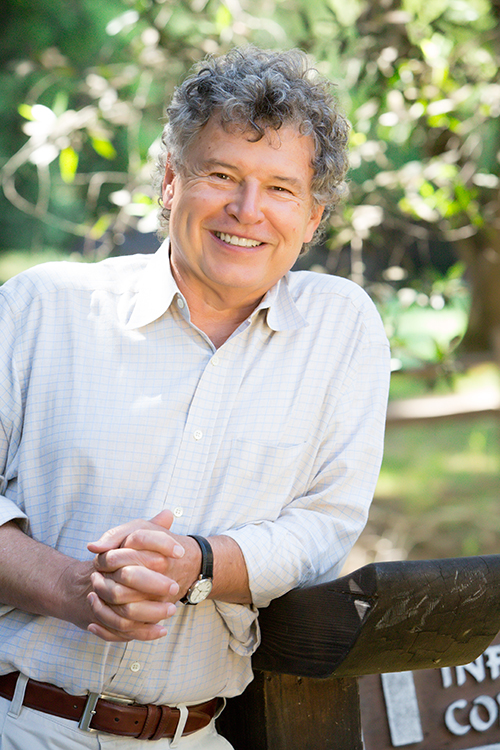
This coming Monday (Sept 16), Phillip Moffitt will lead a guided meditation (about 30 min), followed by a dharma talk (about 1 hr), at the Spirit Rock Community Center near San Francisco. But you don’t have to go to California to take part!
The evening is available live online — and you can watch for FREE — but only if you register in advance (click here).
It begins at 7:15 pm Pacific Time (9:15 pm St. Louis time), but the video recording is available for at least two weeks after the event ends — so you don’t even have to stay up late to watch it!!!
But again, ONLY IF YOU REGISTER BEFORE IT BEGINS. (register here)
Phillip doesn’t do this often. Now’s your chance. Don’t miss it!
Drop-ins Welcome

Registration is closed for this coming weekend retreat led by Tuere Sala, but if you’d still like to attend, you can!
Both the Friday Night Talk (Sept 6th, 6:30 to 8:30 pm) and the Saturday Daylong (Sept 7th, 9:00 am to 4:00 pm) will be held at the First Unitarian Church of St. Louis, 5007 Waterman (at Kingshighway), 63108.
You can come to just the Friday night talk for $10, or just the Saturday daylong for $50, or to BOTH for just $55!
And if you self-identify as a person of color, you can also come to the Sunday Afternoon POC session (Sept 8th, 2:00 to 4:00 pm) for just $5. It will be held at the InPower Institute, 4125 Humphrey Street, 63116.
Not really into pre-planning? No problem. Be spontaneous. Just drop in!
Knowing the Truth of It
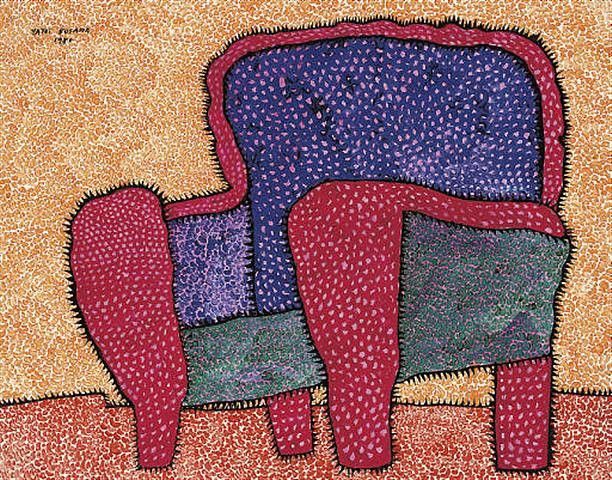
“Let me be perfectly clear that in order for you to take the Buddhist approach [to finding meaning and joy in the face of suffering], it is not necessary for you to adopt a creed, sacrifice your religion, or transform yourself into some new person.
“You simply must have faith in the possibility that understanding your suffering can bring about a radical change in how you experience life. In other words, you must suspend your doubt long enough to see for yourself what you are capable of realizing.
“At the same time, you should not underestimate this challenge, as it demands that you voluntarily show up for your own suffering with no agenda other than knowing the truth of it.”
— from Dancing with Life: Buddhist Insights for Finding Meaning and Joy in the Face of Suffering,
by Phillip Moffitt
